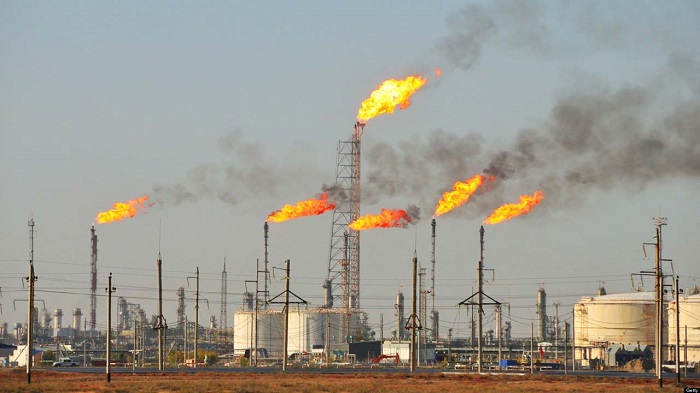A bill for an Act to prohibit gas flaring, encourage gas utilisation and provide for penalties and remedies for gas flaring violations and related matters has scaled second reading in the House of Representatives.

The sponsor of the bill, Rep. Benson Babajimi (APC-Lagos), in his lead debate on Thursday, December 5, 2024, said the bill represented a decisive legislative intervention aimed at addressing the “long standing and damaging” practice of gas flaring in the country.
According to him, it is firmly rooted in the Nigeria’s constitutional obligation to protect the environment and promote sustainable development.
The lawmaker said that the bill sought to prohibit the flaring and venting of natural gas, except in strictly regulated circumstances, while encouraging the utilisation of gas resources to foster economic growth and energy generation.
“It provides a robust framework for enforcement, monitoring and the imposition of penalties to ensure compliance.
“Furthermore, the bill aims to mitigate the environmental, health and economic impacts of gas flaring, aligning Nigeria’s oil and gas operations with international climate change commitments.
“Gas flaring has plagued Nigeria for decades, leading to severe environmental degradation, public health crises and economic losses.
“Environmentally, it contributes to greenhouse gas emissions, global warming and acid rain, exacerbating climate challenges.
“Public health impacts are equally dire, as pollutants from gas flaring cause respiratory and cardiovascular diseases, particularly among residents of communities close to flaring sites.
“Economically, flaring results in the waste of a valuable resource that could otherwise be harnessed for energy generation or exported to generate revenue,” he said.
Babajimi said that the bill provided for a comprehensive prohibition of gas flaring except in emergencies or when explicitly authorised by Nigerian Upstream Petroleum Regulatory Commission (NUPRC).
He said that operators were required to submit and implement Gas Utilisation Plans, detailing how gas that would otherwise be flared would be captured, processed or commercialised.
“Offenders who violate these provisions face stringent penalties, including fines of $5 per 1,000 standard cubic feet of gas flared and potential suspension of operations for repeat violations.
“Furthermore, the bill ensures that communities affected by gas flaring are entitled to compensation and environmental restoration, creating a mechanism for redress.
“Transparency and accountability are integral to the enforcement framework of this bill.
“Operators must submit regular reports on gas flaring incidents, which will be audited and made publicly available by the NUPRC. This approach ensures public oversight and stakeholder engagement, fostering trust and compliance,” he said.
The rep said that the bill, when passed into law, would yield significant benefits like reduction in carbon emissions, thereby contributing to Nigeria’s climate targets and promoting sustainability.
He said that, economically, it would unlock the potential of natural gas as an energy resource, enhancing electricity generation, supporting industrialisation and creating jobs.
According to him, the public health benefits cannot be over-emphasised, as reduced flaring will limit air pollution and associated health risks for affected communities.
Babajimi said that Norway’s zero-flaring policy, for instance, had not only protected the environment but also maximised revenue from gas resources.
The lawmaker said that adoption of the bill would position Nigeria to emulate such success, ensuring a balance between environmental stewardship and economic development.
He said that the implementation would be overseen by Nigerian Upstream Petroleum Regulatory Commission, which would monitor compliance through regular audits and enforcement of penalties, while facilitating gas utilisation projects in collaboration with operators and development partners.
He stated that the Ministry of Environment and other relevant agencies would also play supporting roles, particularly in monitoring the environmental impact and ensuring remediation, where necessary.
Babajimi said that the bill was timely and a necessary response to one of Nigeria’s most pressing environmental challenges.
“Its provisions are both practical and forward-looking, addressing immediate concerns while laying the groundwork for a sustainable future.
“I urge all honourable members to support the second reading of this bill as a demonstration of our collective commitment to environmental protection, public health and economic progress,” he said.
In his ruling, the Speaker of the house, Rep. Tajudeen Abbas, referred the bill to relevant committees for further legislative actions.
By EricJames Ochigbo
